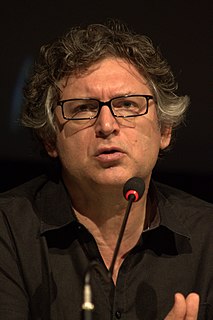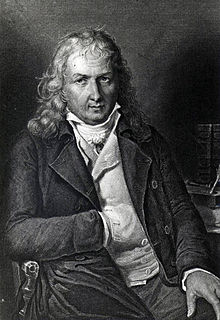A Quote by Friedrich Nietzsche
The transition from Religion to Scientific contemplation is a violent, dangerous leap, which is not to be recommended. In order to make this transition, art is far rather to be employed to relieve the mind overburdened with emotions. Out of the illogical comes much good. It is so firmly rooted in the passions, in language, in art, in religion, and generally in everything which gives value to life. It is only the naive people who can believe that the nature of man can be changed into a purely logical one. We have yet to learn that others can suffer, and this can never be completely learned.
Quote Topics
Art
Art Is
Believe
Changed
Contemplation
Dangerous
Emotions
Employed
Everything
Far
Firmly
Generally
Gives
Good
Illogical
Language
Leap
Learn
Learned
Life
Logical
Make
Man
Mind
Much
Naive
Nature
Nature Of Man
Never
Only
Order
Others
Out
Passions
People
Purely
Rather
Relieve
Religion
Rooted
Scientific
Suffer
Transition
Value
Violent
Which
Related Quotes
What people that are professionals in the art world - both in literature and the other arts - always try to do is to recognize the feasibility of making the transition from the particular to the general - to make the transition from the portrait of one postman - to take Van Gogh, for example, to something that is every postman. That synecdotal transition that most selfies don't make. But we who live in this world, and not simply in our private realities, understand that that's the transition our art has to make.
It is a great mortification to the vanity of man, that his utmost art and industry can never equal the meanest of nature's productions, either for beauty or value. Art is only the under-workman, and is employed to give a few strokes of embellishment to those pieces, which come from the hand of the master.
What is dangerous about the far right is not that it takes religion seriously - most of us do - but rather that it condemns all other spiritual choices - the Buddhist, the Jew, the Muslim, and many others who consider themselves to be good Christians. The wall of separation between church and state is needed precisely because religion, like art, is too important a part of the human experience to be choked by the hands of censors.
Religion has ever filled the mind of man with darkness, and kept him in ignorance of his real duties and true interests. It is by dispelling the clouds and phantoms of religion, that we shall discover truth, morality and reason. Religion diverts us from the causes of evils, and from these remedies which nature advocates, far from curing; it only aggravates, perpetuates and multiplies them.
Thoughts and emotions which never perhaps were in the mind of the artist, never were anticipated, never were intended by him - may be strongly suggested by his work. This is an important part of the morals of art, which we must never lose sight of. Art is not only for pleasure and profit, but for good and for evil.
Art is not a substitute religion: it is a religion (in the true sense of the word: 'binding back', 'binding' to the unknowable, transcending reason, transcendent being). But the church is no longer adequate as a means of affording experience of the transcendental, and of making religion real - and so art has been transformed from a means into the sole provider of religion: which means religion itself.
The antagonism between science and religion, about which we hear so much, appears to me to be purely factitiousfabricated, on the one hand, by short-sighted religious people who confound a certain branch of science, theology, with religion; and, on the other, by equally short-sighted scientific people who forget that science takes for its province only that which is susceptible of clear intellectual comprehension; and that, outside the boundaries of that province, they must be content with imagination, with hope, and with ignorance










































